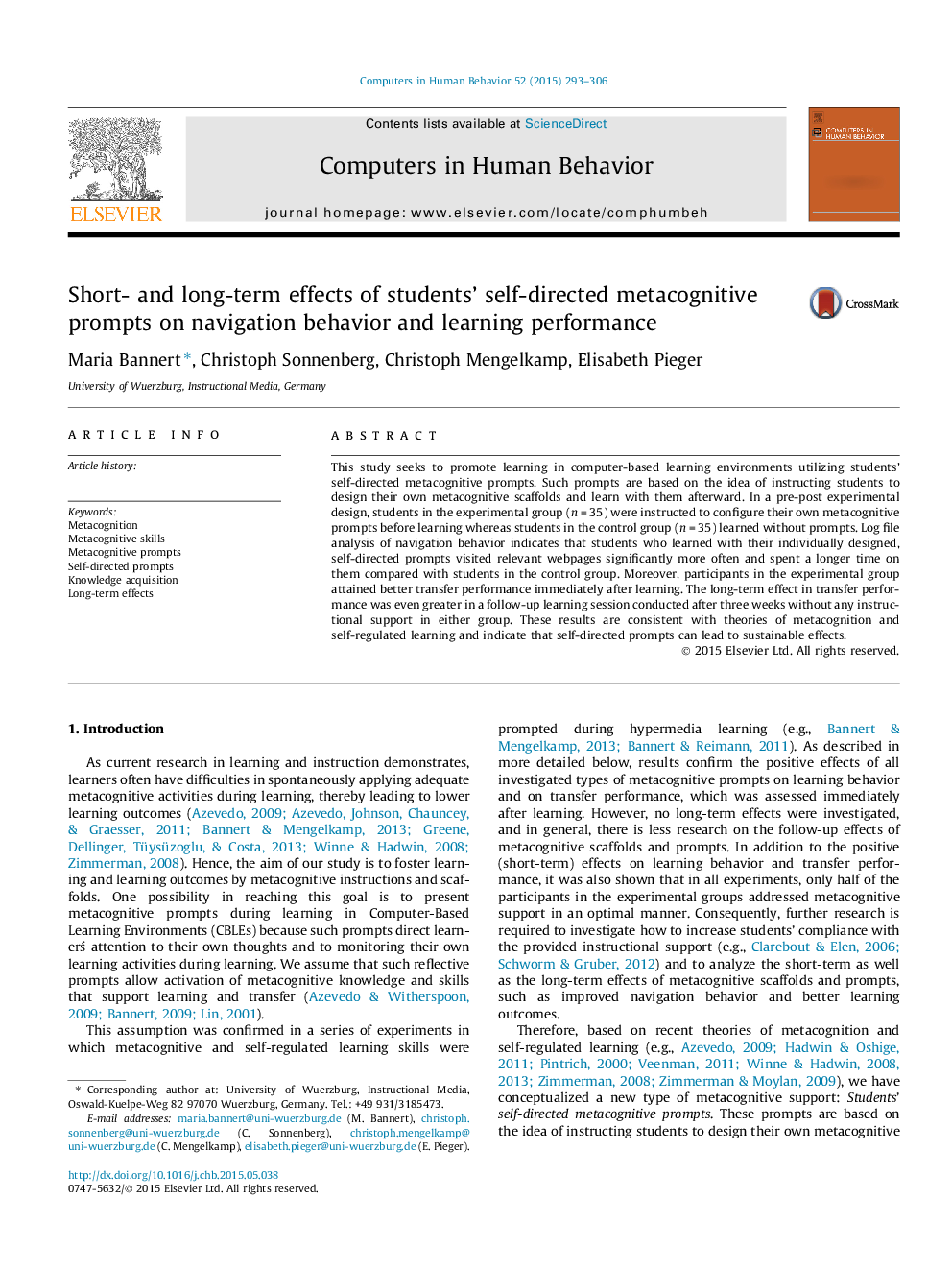| Article ID | Journal | Published Year | Pages | File Type |
|---|---|---|---|---|
| 6838009 | Computers in Human Behavior | 2015 | 14 Pages |
Abstract
This study seeks to promote learning in computer-based learning environments utilizing students' self-directed metacognitive prompts. Such prompts are based on the idea of instructing students to design their own metacognitive scaffolds and learn with them afterward. In a pre-post experimental design, students in the experimental group (n = 35) were instructed to configure their own metacognitive prompts before learning whereas students in the control group (n = 35) learned without prompts. Log file analysis of navigation behavior indicates that students who learned with their individually designed, self-directed prompts visited relevant webpages significantly more often and spent a longer time on them compared with students in the control group. Moreover, participants in the experimental group attained better transfer performance immediately after learning. The long-term effect in transfer performance was even greater in a follow-up learning session conducted after three weeks without any instructional support in either group. These results are consistent with theories of metacognition and self-regulated learning and indicate that self-directed prompts can lead to sustainable effects.
Related Topics
Physical Sciences and Engineering
Computer Science
Computer Science Applications
Authors
Maria Bannert, Christoph Sonnenberg, Christoph Mengelkamp, Elisabeth Pieger,
